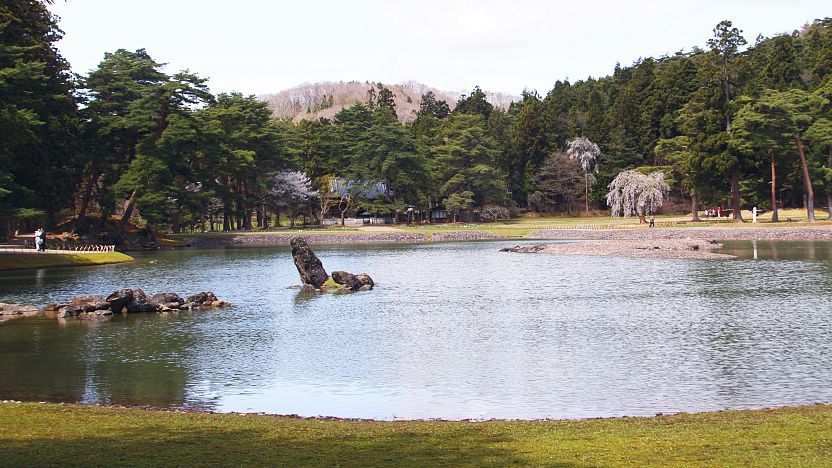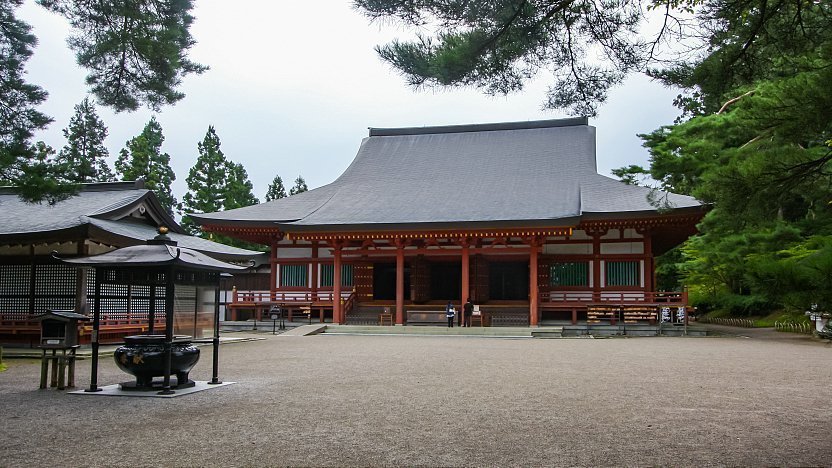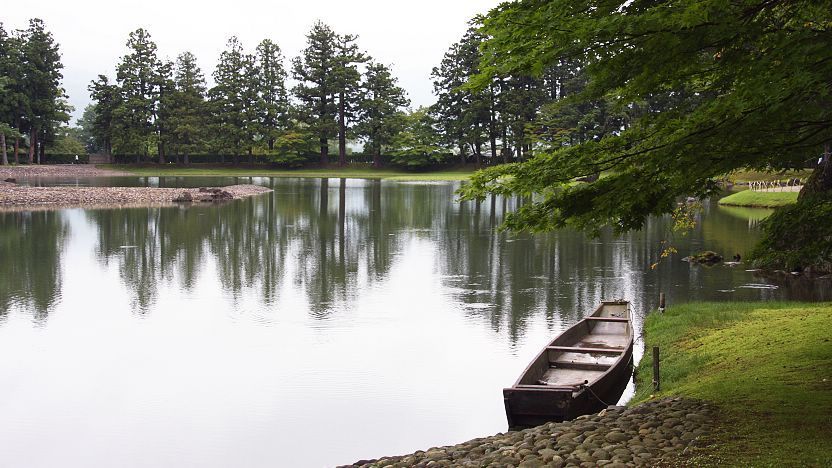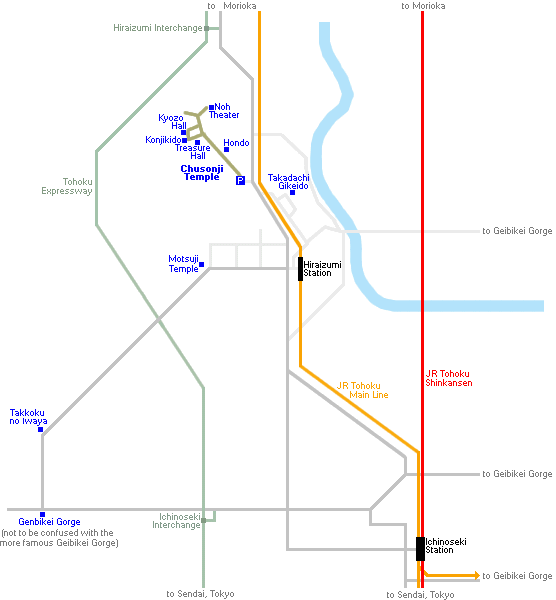
Motsuji (¢čēzÄø, Mōtsūji) was once a large and important temple of the Tendai sect in Hiraizumi, consisting of numerous buildings. As with Chusonji, Motsuji's fortune rose and fell with the fortune of the Fujiwara family. Today, Motsuji is best known for its garden, one of the few remaining pure land gardens in Japan.
Pure land gardens were a popular garden style during the Heian Period, attempting to recreate the Buddhist concept of the pure land or "Buddhist paradise". Like all pure land gardens, Motsuji's garden is centered around a large pond. The garden is best enjoyed by walking along the path that leads about 500 meters around the pond's circumference.

When walking around Motsuji, visitors will encounter many sign posts indicating the sites of former buildings. The foundations of these buildings have been left intact, allowing one to imagine the grandeur of Motsuji as it stood before. These same foundations inspired the celebrated haiku poet Basho to compose one of his most famous poems, in which he reflects on the impermanence of glory.
Motsuji still has a number of standing buildings that will interest visitors. Among these are the Hondo, the temple's principal hall; the Cultural Assets Repository, a treasure house displaying Motsuji's historical and cultural artifacts; and the Kaizando, a building commemorating the third head of the Tendai sect and the three Fujiwara lords who ruled over Hiraizumi.

Getting there and around
From Hiraizumi Station, Motsuji can be reached in a three minute ride by the Hiraizumi Loop Bus or in a ten minute walk.
How to get to and around Hiraizumi

Hours and Fees
Hours
Closed
Admission
Questions? Ask in our forum.


